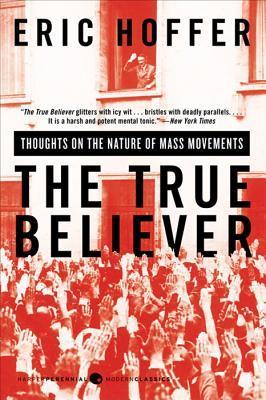More on this book
Community
Kindle Notes & Highlights
the art of turning practical purposes into holy causes.
kindled an enthusiasm of resentment against the West;
people with a sense of fulfillment think it a good world and would like to conserve it as it is, while the frustrated favor radical change.
The tendency to look for all causes outside ourselves persists even when it is clear that our state of being is the product of personal qualities such as ability, character, appearance, health and so on.
they are afraid to tinker with it. Thus the resistance to change and the ardent desire for it spring from the same conviction,
One of these is a sense of power.
We hereby acquire the illusion that we have tamed the unpredictable.
There is thus a conservatism of the destitute as profound as the conservatism of the privileged, and the former is as much a factor in the perpetuation of a social order as the latter.
cannot do so by breeding and captaining discontent or by demonstrating the reasonableness and desirability of the intended changes or by coercing people into a new way of life.
They must know how to kindle and fan an extravagant hope.
there is often a monstrous incongruity between the hopes, however noble and tender, and the action which follows them.
they must be wholly ignorant of the difficulties involved in their vast undertaking.
those who crave to be rid of an unwanted self.
satisfy the passion for self-renunciation.
a sense of purpose and worth by an identification with a holy cause.
which they cannot evoke out of their individual resources.
When a mass movement begins to attract people who are interested in their individual careers, it is a sign that it has passed its vigorous stage; that it is no longer engaged in molding a new world but in possessing and preserving
Faith in a holy cause is to a considerable extent a substitute for the lost faith in ourselves.
man is likely to mind his own business when it is worth minding. When it is not, he takes his mind off his own meaningless
Take away our holy duties and you leave our lives puny and meaningless.
people can live without hope only when kept dazed and out of breath by incessant hustling. The despair brought by unemployment comes not only from the threat of destitution, but from the sudden view of a vast nothingness ahead. The unemployed are more likely to follow the peddlers of hope than the handers-out of relief.
the embracing of a substitute will necessarily be passionate and extreme.
We cannot be sure that we have something worth living for unless we are ready to die for it.
(b) all mass movements are interchangeable.
Emigration
namely, change and a chance for a new beginning.
wholly without reverence toward the present.
It is usually those whose poverty is relatively recent, the “new poor,” who throb with the ferment of frustration.
The present-day workingman in the Western world feels unemployment as a degradation. He sees himself disinherited and injured by an unjust order
De Tocqueville
“the French found their position the more intolerable the better it became.”
It is not actual suffering but the taste of better things which excites people to revolt.
A rising mass movement preaches the immediate hope.
as the movement comes into possession of power, the emphasis is shifted to the distant hope
Stalinism is as much an opium of the people as are the established religions.
slavery the troublemakers are the newly enslaved and the freed slaves.
Unless a man has the talents to make something of himself, freedom is an irksome burden.
We join a mass movement to escape individual responsibility,
its chief preoccupation will be with unity and self-sacrifice, which require the surrender of the individual’s will, judgment and advantage.
the adherents of a rising movement have a strong sense of liberation even though they live and breathe in an atmosphere of strict adherence to tenets and commands. This sense of liberation comes from having escaped the burdens, fears and hopelessness of an untenable individual existence.
Those who see their lives as spoiled and wasted crave equality and fraternity more than they do freedom.
a passion for anonymity:
They want to eliminate free competition and the ruthless testing to which the individual is continually subjected in a free society.
Nothing so bolsters our self-confidence and reconciles us with ourselves as the continuous ability to create;
The strong family ties of the Chinese probably kept them for ages relatively immune to the appeal of mass movements.
Economic independence for women facilitates divorce.
Economic independence for the young weakens parental authority and also hastens an early splitting up of the family group.
All the advantages brought by the West are ineffectual substitutes for the sheltering and soothing anonymity of a communal existence.
The policy of an exploiting colonial power should be to encourage communal cohesion among the natives. It should foster equality and a feeling of brotherhood among them.
inject the innovations and reforms into tribal or communal channels and let the tribe or the community progress as a whole.


